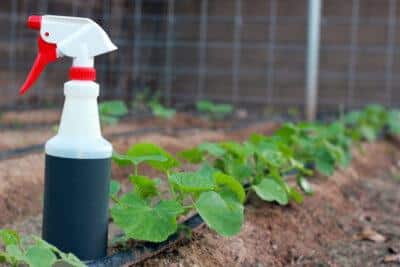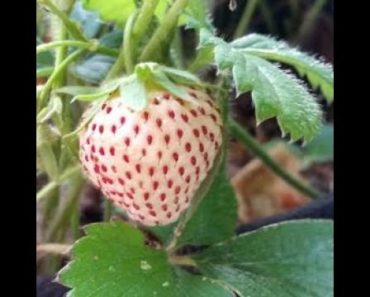
Natural Garden Pesticides That Really Work
Nothing’s worse than watching pests munch through your garden like it was planted for them. While we try to avoid pesticide use through companion planting and attracting natural predators , sometimes it’s not enough and we need a targeted and limited application of natural pesticide.
The right pesticide for those living off the grid is a combination of two things. First, it has to be easy to produce from readily available materials. Second, and most importantly, it has to be safe to your family and to the carefully balanced ecological system in your garden. The pesticide mixes below meet these criteria. (Some of them aren’t technically pesticides; they’re deterrents, but the effect is the same — keeping the bugs of your plants).
Before getting started, please remember the following:
- Many of the plant extracts below can irritate your skin. Make sure to wear gloves and eye protection when mixing, handling and spraying. Keep them away from children and pets.
- These are not industrial-strength solutions designed to eradicate any and everything in their path. They are natural, and therefore need to be applied more frequently than commercial pesticides, and after rain as well. They won’t be effective if you frequently apply water to the top of your plants.
- A couple of the mixes call for natural-based detergent. This means detergent without dyes or anti-bacterial agents added (which can harm the plants). If you’re a diehard homesteader and make your own soap, you can use that instead.
1. Chili Peppers
This mix works against aphids, grasshoppers and other larger insects that love to devour your plants. Put three or four halved chili peppers, a coarsely chopped large onion, and a bulb of garlic in a food processor. Add 1/2 cup of water and mix until finely shredded. Cover the mix with one gallon of hot but not boiling water.
After 24 hours, strain and spray on where needed. For areas where need is greatest, follow the same directions, but blend everything to a fine purée and then work it gently into the soil surrounding the affected plants.
2. Basil
Aphids are a constant source of irritation in my garden. If you have the same problem, try a basil pesticide. Bring three cups of water to a boil, and then add a cup of fresh basil. Let the mix cool and strain. Then add a teaspoon of natural-based dish detergent. Spray onto affected plants.
3. Tobacco
While much maligned for other reasons, nicotine is a natural pest repellant. Aphids, caterpillars, and other pests avoid it. Mix one cup of tobacco in a gallon of water. Let it sit for 24 hours. Spray the solution sparingly where needed, but don’t use on members of the Solanaceae family (tomatoes, eggplants, peppers and others) or on potatoes. Nicotine is lethal to these plants.
Story continues below video
4. Chrysanthemum Flowers
Pyrethrum is a commercially available, natural insecticide used by organic gardeners. It works by destroying the insects’ nervous systems. Pyrethrum is particularly effective against aphids, spider mites, and cabbageworms (which is why chrysanthemum flowers are a great companion plant for broccoli, cauliflower and cabbage).
To make your own, boil four or five ounces of dried flowers in a quart of water. Strain and let cool. Spray where needed.
Get Rid Of Unwanted Insects Without The Use Of Dangerous Chemicals
5. Horseradish
This mix deters many common garden pests. Take a handful of spearmint leaves, two horseradish roots (with tops), and a few scallions. Chop roughly and cover with water. The next day, strain the mix and add a tablespoon of cayenne pepper and two tablespoons of natural-based dish detergent. Spray where needed.
Insect pests are a natural part of the garden, but with healthy plants, companion planting and using natural predators, they often are not a problem. However, if you do get some bugs helping themselves to a free dinner, try these natural pesticides.
Do you have any all-natural pesticide tips? Tell us in the comments section below.


























